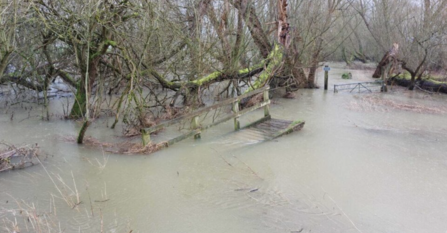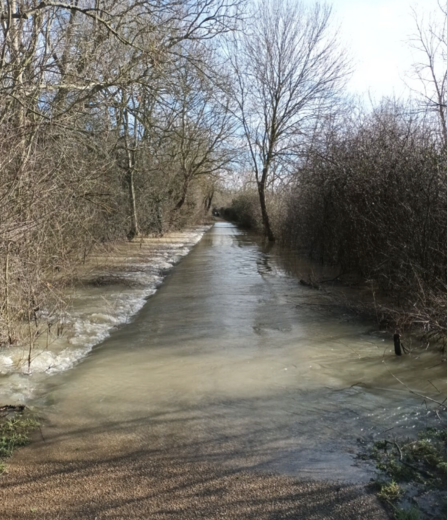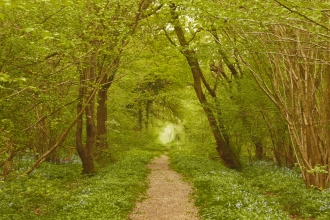Across Beds, Cambs and Northants our reserves teams have never seen a winter quite like this one - from a watery Woodwalton Fen, Cambs to a sodden Strawberry Hill, Beds, the photos here bear testament to the total saturation that has been seen widespread across the country.
As CEO Brian Eversham says: "With the wettest winter on record following a couple of years after the 40°C heatwave, few people can doubt that the climate has changed, and is going to change even more. Wetter winters are certainly bad news for many of our woodland flowers unable to cope with waterlogged soils, and mild, wet winters are not good for animals that hibernate."
Even now into April, some reserves, especially some of our ancient woodlands, will need to remain closed much longer than anticipated. Cambs reserves manager Matt Hamilton says: "The woods are the wettest that we have ever seen at this time of year - they would be considered ‘extra wet’ even if it was still mid-winter. Sadly some of the woods will have to remain closed and, as yet, we don't know when the sites that are currently closed will be re-opened."
As the realities of climate crisis become increasingly evident Environment Agency data has shown that almost every river in England has been exceptionally high, with some reaching their highest flow on record.








